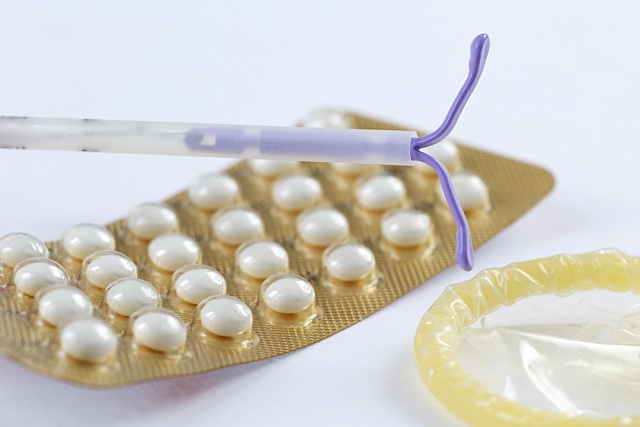For many years the IUD has been a very scary thing. A lot of people are uncomfortable with the idea of having birth control that goes inside of their bodies. IUDs are certainly not for everyone, but with a new study discussing how IUDs might help prevent high-risk HPV (this is different from low-risk genital wart HPV) that causes cervical cancer, I thought it best to revisit the IUD from someone who has one.
CBS News reported yesterday that the IUD may “reduce a woman’s risk of cervical cancer by about a third.”
This is huge news because the vaccine for HPV is really most effective for women and men who have no prior sexual contact, which is why it is recommended for parents to give their children the vaccine when they are 11-12. However, many parents do not because they are not comfortable with the idea of there children even thinking about sex at that age, despite the long-term benefits. Also, women who were sexually active before the vaccine was publically available.
Researchers think IUDs might promote an immune response that kills off human papillomavirus (HPV), the virus that causes virtually all cases of cervical cancer.
“The data say the presence of the IUD in the uterus stimulates an immune response, and that immune response very, very substantially destroys sperm and keeps sperm from reaching the egg,” explained lead researcher Victoria Cortessis. “It stands to reason the IUD might influence other immune phenomenon.”
These results could be potentially lifesaving for young adult women who are too old to benefit from the HPV vaccine, said Cortessis.
HPV is so widespread that 80% of sexually active people have it. There is no way to test for it unless it manifests itself in either a wart or an irregular pap-smear indicating cervical cancer. Now, unfortunately, even people who get the vaccine can get cervical cancer, but it lowers the chances dramatically. Thankfully, for most people, the virus clears itself within 2 years and with early detection, it cuts the mortality rates for people who develop cervical or throat related HPV cancers.
The investigators found 16 high-quality studies that could be combined to provide an expanded picture of the risk of cervical cancer for women using an IUD. The data included nearly 5,000 women who developed cervical cancer and just over 7,500 women who did not.
The analysis is “fascinating,” and the potential explanation for why an IUD might reduce cervical cancer risk “really does make sense,” said women’s health specialist Dr. Jill Rabin.
“This is just one more reason potentially to help us recommend a great contraceptive method to women,” said Rabin, co-chief of the division of ambulatory care with Women’s Health Programs-PCAP Services at Northwell Health in New Hyde Park, N.Y.
Now this news does not mean that parents shouldn’t vaccinate their children or women should forsake their regular pap smear. It does provide an option for those outside of the age bracket or those who were sexually active before getting the vaccine and want some extra protection. Hopefully, this discovery will help people invest more into treating HPV once it is in the body and eliminating it completely. A girl can hope anyway.
Alright, so for those out there who are interested in getting an IUD or just want more information on the subject the Planned Parenthood website has concise information with all the details you need. A summary of some facts:
- IUD stands for Intrauterine Device (basically: a device inside your uterus). It’s a small piece of flexible plastic shaped like a T. Sometimes it’s called an IUC — intrauterine contraception.
- There are five kinds, and they each last different length of years: Mirena (6), Kyleena(5), Liletta(4), and Skyla (3), as well as a copper IUD, called a ParaGard (12).
- Yes, it does hurt when it is put in, however, it passes fairly quickly and some Advil helps with the pain. You will want to wear a pad to prevent any spotting.
- The ParaGuard also works as an emergency birth control if inserted within 5 days after unprotected sex it is 99.9% effective.
- The IUD is more 99% effective against pregnancy, but do not protect you against STIs so if you want protection against pregnancy as STIs you still have to use condoms.
- While serious problems are rare it is important that you pay attention to any serious pains and bring it to the attention of your OBGYN.
- Sometimes your period goes away, I wasn’t blessed in that way, but it can happen.
- In NYC IUDs are free and depending on your insurance it can be free as well. Going to your local PP they can tell you the most cost-effective method of getting.
- Also no, your partner will not feel it during sex and on the off-chance, they do you can get the strings cut.
For any further questions speak to your local PP or OBGYN.
(image: Shutterstock)
Want more stories like this? Become a subscriber and support the site!
—The Mary Sue has a strict comment policy that forbids, but is not limited to, personal insults toward anyone, hate speech, and trolling.—










Published: Nov 9, 2017 01:41 pm